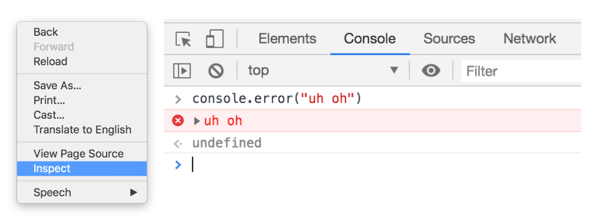Why do issues happen in the first place?
In the engineering world, we have a parody of the classic “99 Bottles of Beer” song: “99 little bugs in the code, 99 little bugs in the code. Take one down, patch it around, 117 little bugs in the code!”
In other words, we understand that software bugs are inevitable. No matter how careful we are, or how many automated tests we write, or how long it sits in QA, some things slip through the cracks. Typically, the root cause of a bug is an incorrect assumption for how something should work or a misunderstanding of how multiple pieces of the app depend on each other.
How does AdvicePay find out about issues?
There are a few main ways we find out about bugs:
- It’s discovered during manual QA testing
- We receive an email from Sentry - a program that automatically alerts us of unexpected errors that our code hits
- A user reports it to us ← we will be focusing on this one for the rest of the post!
What does AdvicePay do when you report a bug??
When a user writes in reporting a potential bug, our Support team kick things off with some information gathering. They try to determine if this is indeed a bug (or just some confusing functionality) and how urgent it is.
From there, any relevant info is added to a ticket in our project management tool and passed off to the engineering team. When a developer picks it up, the first thing they typically do is try to reproduce the issue on their own computer (this is where the user can be super helpful - more on that below). Reproducing the issue allows the developer to thoroughly test that their fix is correct, rather than doing guesswork and keeping their fingers crossed.
Once a fix is ready and tested by the developer, it either goes live right away (if the problem will get worse the longer we wait or app functionality is really degraded), or gets deployed in the following scheduled release.
How to be extra helpful when reporting an issue
We really appreciate when a user reports an issue! We know it takes time out of your day (plus you’re probably understandably frustrated that you’re encountering an issue in the first place), and it makes the quality of our software better. That being said, there are a couple of extra steps a user can take that makes AdvicePay’s life easier.
- One way to be extra helpful is to provide specific steps you took before hitting the issue. Since a developer will ultimately be trying to retrace the steps you took anyways, providing that upfront can really help speed things up. This can be a screen recording, or just in writing. The difference between “my email recipient disappeared” and “I went to my account settings, then added an additional email recipient for the first time, refreshed the page, and the recipient was no longer there” can save a surprising amount of time!
- Another way to be extra helpful is to grab screenshots of errors that you run into. Sometimes your browser hits errors that don’t get reported to us automatically. Finding these can vary slightly from browser to browser but typically you right click, hit “Inspect”, then look at the “Console” tab. If you see red, that means there are errors that could be really insightful!

Thank you!
Hopefully you don’t run into any issues while using AdvicePay, but if you do, please report it! Whether you are asking for clarification about a feature, experiencing an issue, or requesting features, please reach out to us; we’re happy to help!
Now you have a peek into what happens on the other end, and how to take your reporting to the next level (feel free to use these tips when reporting issues to other apps you use - they’ll be impressed).
No Comments Yet
Let us know what you think